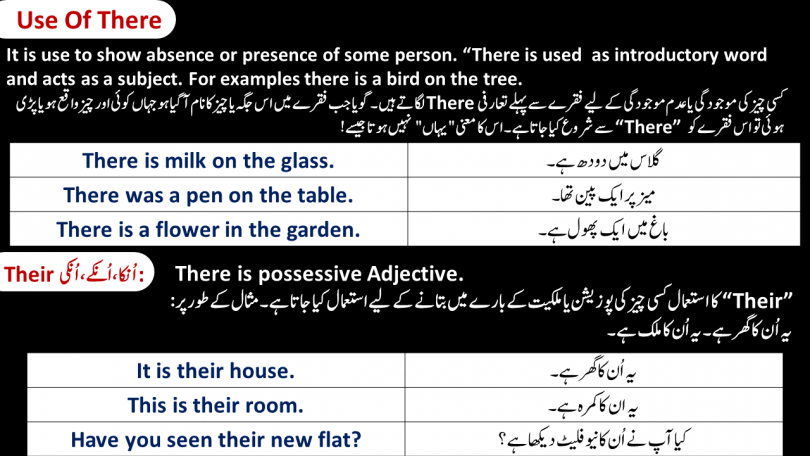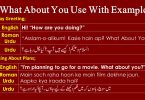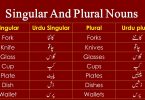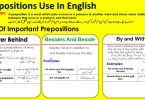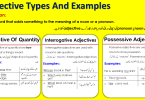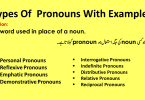Use Of There, Their, They’re In English Grammar
Here, in this lesson you are going to learn the use of there, their and they’re with Urdu To English Examples. This lesson will be really helpful for English Grammar. We know well everyone wants to speak English. There are some steps to learning and speaking English, the first which is to strengthen your English Grammar. If your English Grammar is strong, you will be able to speak English well. Because only by learning English Grammar we can become good English speakers. To learn English, first of all, English Grammar has to be strengthened. Knowing the importance of English Grammar, today we are going to teach a very important and easy lesson about English Grammar. I hope some parts of English Grammar will become very easy after learning this lesson.
Use Of There, Their, They’re With Examples
Above we have explained in detail the importance of English Grammar. Now here we will teach you in detail about today’s English Grammar lesson. In this lesson, I have come up with the use of there, their, and they’re in English Grammar.
Use of there:
In English Grammar, there is used It is used to show the absence or presence of some person. “There is used as an introductory word and acts as a subject.
Detailed Description:
In English Grammar when we talk about the use of there, there is used to show the absence or presence of some person or thing. It means that a person or thing is present at a particular point or not. Let’s understand with some Examples There is water on the glass. There is a book on the table.
Their: Their is a possessive adjective. Their is used to to show the ownership of person.
They’re: They’re is followed by an adjective. For example, They’re happy, they’re sad.
There:
It is used to show the absence or presence of some person. “There is used as an introductory word and acts as a subject. For example, there is a bird on the tree.
لگاتے ہیں۔”There” کسی چیز کی موجودگی یا عدم موجودگی کے لیے فقرے سے پہلے تعارفی
سے شروع کیا جاتا ہے۔”there”گویا جب فقرے میں اس جگہ یا چیز کا نام آ گیا ہو جہاں کوئی اور چیز واقع ہو یا پڑی ہوئی تو اس فقرے کو
Sentences: جملے
There is milk on the glass.
گلاس میں دودھ ہے۔
There was a pen on the table.
میز پر ایک پین تھا۔
There is a flower in the garden.
باغ میں ایک پھو ل ہے۔
اگر فقر ے میں جگہ یا چیز کے ساتھ “وہاں” کا ذکر آجائے تو اس کا ترجمہ یوں ہوگا۔
There was no player there.
وہاں کوئی کھلاڑی نہیں تھا۔
There was a servant there.
وہاں ایک ملازم تھا۔
There were many children there.
وہاں بہت سارے بچے تھے۔
Rules for Negative Sentences:
For negative sentences, “no” is added after, after “There, is, am, are, was, were, will, shall, has, have, had” like: There is no cat.
Rules for Interrogative Sentences:
In interrogative sentences, “is, am, are, was, were, has, have, had, will, shall” are placed at the beginning of the sentence, just before the subject.
“There”والے فقروں کو اگر منفی بنانا ہو تو ، is, am, are , was, were”
کے بعد “not” کی بجائے “no”
لگایا جاتا ہے جو کوئی نہیں کا مفہوم دیتا ہے
اس قسم کے فقروں کو اگر سوالیہ بنانا ہو تو “is, am, are, was, were”
کو فقرے سے قبل لگا کر آخر پر سوالیہ نشان استعمال کیا جاتا ہے۔
There was no lion in the zoo.
چڑیا گھر میں شیر نہیں تھا۔
There is no bed in room.
کمرے میں بیڈ نہیں ہے۔
Were there birds in the nest?
کیا گھونسلے میں پرندے تھے؟
There is no school in this city.
اس شہر میں سکول نہیں ہے۔
Were there many children there?
کیا وہاں بہت سارے بچے تھے؟
Are there fifty boys in this class?
کیااس کلاس میں 50 بچے ہیں۔
Was there any book on the table?
کیا میز پر کوئی کتاب تھی؟
There was no bridge over the river.
دریا پر کوئی پل نہیں تھا۔
Were four children studying there?
کیا وہاں 5 بچے پڑھائی کر رہے تھے؟
Was there a tall tree in the garden?
کیا وہاں باغ میں ایک لمبا درخت تھا؟

Use Of Their
Their اُنکا،اُنکے، اُنکی:
There is a possessive Adjective.
کا استعمال کسی چیز کی پوزیشن یا ملکیت کے بارے میں بتانے کے لیے استعمال کیا جاتا ہے۔ مثال کے طور پر: یہ اُن کا گھر ہے۔ یہ اُن کا ملک ہے۔ “their”
But “his” is used instead in the place of “their” when the phrase is about the ownership of women.
استعمال کیا جا تا ہے۔”their”کی جگہ”his”لیکن جب فقرے میں کسی مؤنث کی ملکیت کے بارے میں بتایا جائے گا تو
جب فقرے میں ملکیت دویا دو سے زائد لوگوں کی ظاہر کی جائے گی تو ہم جملے میں
کا استعمال کریں گے۔ “their”
Use Of their in sentences:
It is their house.
یہ اُن کا گھر ہے۔
This is their room.
یہ ان کا کمرہ ہے۔
Have you seen their new flat?
کیا آپ نے اُن کا نیوفلیٹ دیکھا ہے؟
Their house is big.
اُن کا گھر بڑاہے۔
Do you have their cycle?
کیا آپ کے پاس اُن کی گاڑی ہے؟
Who finished their ice cream?
اُن کی آئس کریم کس نے ختم کی ہے؟
Who will drive their car?
اُن کی گاڑی کون چلائے گا؟
I think your are not talking about their plan.
میرے خیال میں آپ اُن کے منصوبے کے بارے میں بات کررہے ہیں۔
Why are using their laptop?
آپ اُن کا لیپ ٹاپ کیوں استعمال کررہے ہیں؟
I was reading their books.
میں اُنکی کتابیں پڑھا رہا تھا۔
Their + noun
In possessive sentences “their” is used before “noun”.
ملکیت ظاہرکرنے والے جملوں میں”their” کو “noun”سے پہلے استعمال کیا جاتا ہے۔
Their mother is very kind.
اُن کی امی بہت مہربان ہے۔
Their car is fast.
اُن کی گاڑی تیزہے۔
Their plans were not good about us.
اُن کے منصوبے ہمارے بارے میں اچھے نہیں تھے
Their father was furious.
اُن کا ابو غصے میں تھا۔
Their teacher was talking about Imran Khan.
اُن کا استادعمران خان کے بارے میں بات کر رہا تھا۔
They’re
They’re is followed by an Adjective.
They’re angry.
وہ غصے میں ہیں۔
They’re happy.
وہ خوش ہیں۔
They’re + verb +I ng
They’re going to market.
وہ مارکیٹ جارہے ہیں۔
They’re playing football.
وہ فٹ بال کھیل رہے ہیں۔
They’re sleeping.
وہ سو رہے ہیں۔


